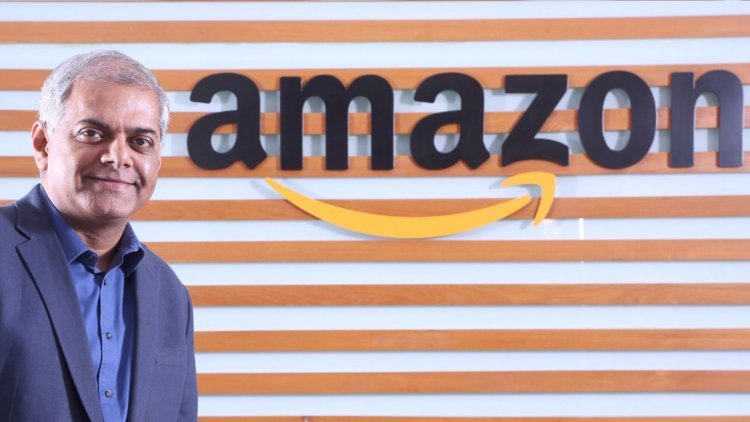Amazon has pulled the plug on cricket, but the company still has faith in India
Securing the cricket tournament's digital streaming rights would be a big triumph for Amazon, potentially attracting hundreds of millions of spectators.

Manish Tiwary had only been at Amazon.com Inc.'s India operation for a few months when he was faced with a difficult decision: how aggressively should the US e-commerce giant bid for media rights to the Indian Premier League?
Securing the cricket tournament's digital streaming rights would be a big triumph for Amazon, potentially attracting hundreds of millions of spectators. Tiwary and his colleagues, on the other hand, would have to compete against deep-pocketed behemoths such as Reliance Industries Ltd. Amazon pulled the plug on the auction before it ever begun, which was a remarkable action. The billions would be better spent on Amazon's e-commerce operation, Tiwary and senior management in Seattle determined.
"The ultimate decision was based on cost numbers," Tiwary said on the 27th floor of Amazon's India offices in Bangalore's northern neighbourhood of Yeshwanthpur, in one of his first interviews since taking over as country director.
It's a sign of the difficult decisions that lie ahead for the 52-year-old former Unilever Plc executive, who started his new job in February. With powerful local competition, a cantankerous administration, and particularly price-sensitive consumers, the country of almost 1.4 billion people may be Amazon's most intriguing long-term prospect, but it's also exceedingly tricky.
Amazon began to focus on India under the leadership of founder Jeff Bezos, who visited the nation on a regular basis and mingled with Prime Minister Narendra Modi. To increase its presence in India, the corporation has invested more than $6.5 billion, hired 110,000 people, and built 60 warehouses.
The next stage of expansion, according to Tiwary, will come from expanding outside India's major cities to what is known as Bharat, or the less affluent, non-English speaking people in rural areas. He expects this campaign to bring in the next 100 million shoppers.
Tiwary stated, "I want Amazon to flourish alongside India." "India is expected to be the world's fastest-growing major economy."
As hundreds of millions of first-time smartphone users get access to the internet, India's e-commerce business is expected to expand to $350 billion by 2030, rising at a rate of roughly 23%. This has attracted a slew of competitors, from Reliance Industries to Walmart Inc.'s Flipkart, as well as a slew of startups. Given that only a small percentage of the country's $1 trillion retail sector has shifted online, Tiwary believes there is potential for numerous competitors to flourish.
"With less than 3% internet retail penetration, competition is the last thing on my mind," he remarked. "Both sellers and buyers have begun to see the value of internet retail."
He uses a combination of technology and marketing to go outside India's major cities. It will be centred on what Tiwary refers to as "Smart Commerce," a programme launched last month to assist small businesses in going online. So far, the company has gotten approximately a million vendors on board, but that's only a small percentage of the total.
"Online shopping can reach every corner of India if the 13 million or more small enterprises are digitised," said Tiwary, who spent two decades at Unilever working in Thailand, Vietnam, India, and Dubai.
He also believes that allowing more buyers to use Amazon through voice, including in their native languages, is crucial. As a result, the company's developers are working to improve app functionality to allow for such purchases. It's also getting into buy-now-pay-later, which is becoming more popular as a means to provide clients credit without requiring them to use a credit or debit card.
His marketing technique is diametrically opposed to that of Mukesh Ambani's Reliance Industries, a huge conglomerate. For 238 billion rupees ($3.05 billion), a Reliance-backed joint venture secured the rights to stream Indian Premier League cricket matches online.
Tiwary plans to concentrate Amazon's efforts on cultivating local influencers who can assist promote to Bharat customers. These aren't celebrities like Addison Rae or Kim Kardashian. Instead, they're homemakers like Kajal Srivastava of Deoghar, Jharkhand, or students like Ahmad Zahid of Kashmir, who unbox and show off things like inexpensive sports shoes, memory foam pillows, and the latest instant curry dish.
"It's not like the TikTok influencers you see throughout the world," Tiwary explained. "It's still small, but it appears to be very promising." It's a new social commerce playbook."




 admin
admin 




















